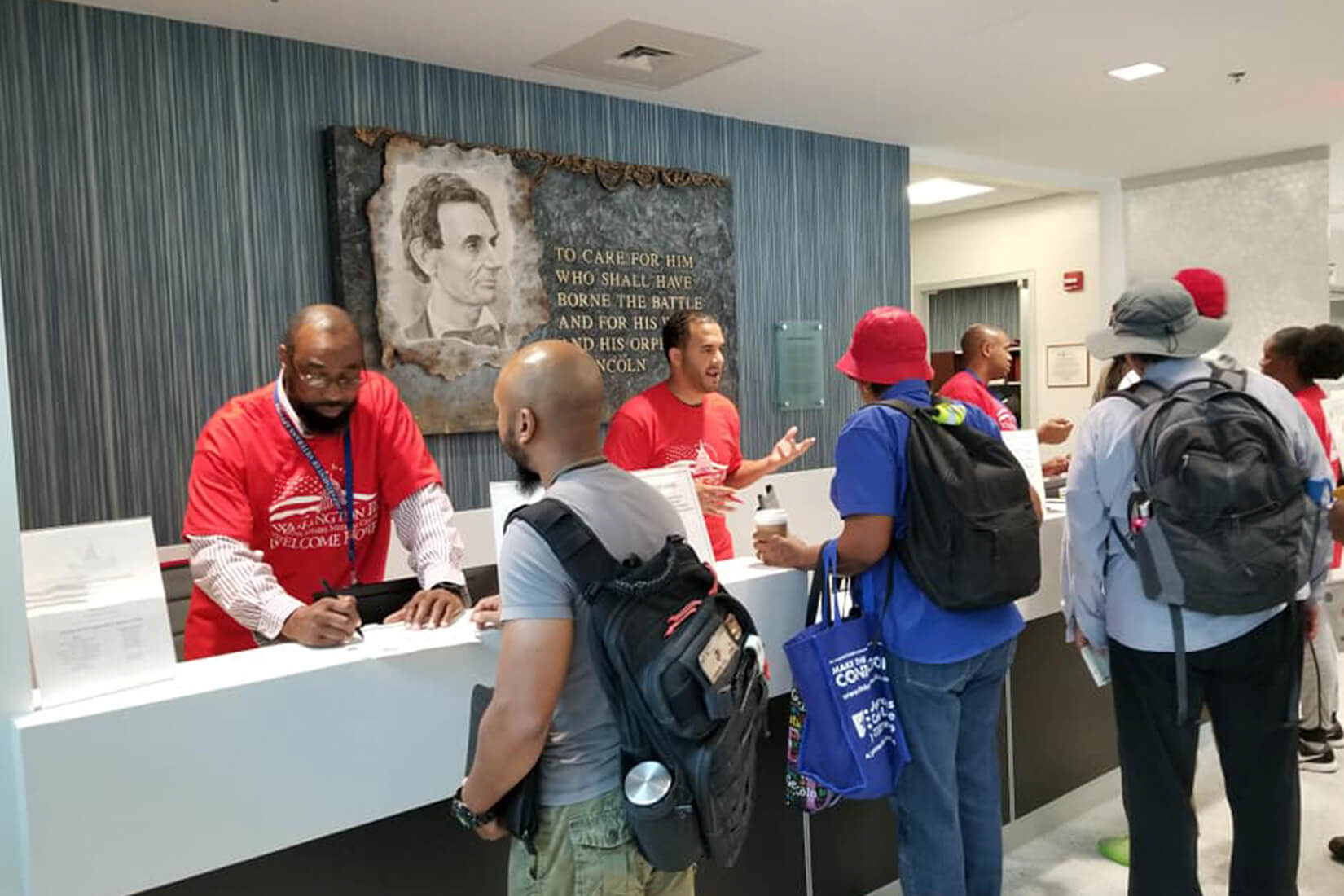
WASHINGTON—VA officials told lawmakers last month that it opposes a bill that would expand the presumption of Agent Orange exposure to Vietnam veterans who served offshore because the “science is not there.”
Currently, VA only recognizes veterans who actually set foot in Vietnam or those who served in Vietnam’s inland waterways, known as “Brown Water” veterans, as qualifying for the presumption of exposure to Agent Orange. With the exception of non-Hodgkin lymphoma, VA does not include so-called Blue Water veterans in the presumption for the list of Agent Orange related-conditions, maintaining there is not enough evidence to do so.
“The National Academy of Medicine reviewed all scientific evidence concluding that it was unable to state with certainty that Blue Water Navy personnel were or were not exposed to Agent Orange,” Veterans Benefits Administration Undersecretary for Benefits Paul Lawrence, PhD, said last month.
Lawrence made his comments at a Senate Committee on Veterans’ Affairs hearing on various legislation, including the Blue Water Navy Vietnam Veterans Act of 2018. The bill would extend the presumption of exposure to Agent Orange to veterans who served on open sea ships off the shore of Vietnam during the Vietnam War. Lawrence explained that, if the bill becomes law, it would open the door for other causes “without valid science to petition Congress for compensation.”
Lawrence said that VA continues to study the issue and that a new VA health study that includes Blue Water veterans is ongoing and initial results are due in 2019 with publication of results potentially in one to two years.
“Nearly 1,000 Blue Water Navy veterans are included in this study at the time,” he said.
Unanimous House Vote
The Senate hearing came after a unanimous vote in the House of Representatives to address Agent Orange benefits for so-called Blue Water Navy veterans. The House passed its version of the bill 382-0.
“This bill is critical to our nation’s Blue Water Navy veterans, as it ensures they receive benefits for any condition they may have developed as a result of exposure to Agent Orange,” said House Committee on Veterans’ Affairs Chairman Rep. Phil Roe, MD, (R-TN) after the vote.
Veterans organizations and several lawmakers have been pushing for Senate passage of the bill.
“We now call on the Senate to take similar action on the Blue Water Navy Vietnam Veterans Act so that it can be sent to the president and finally signed into law this year,” Garry Augustine, executive director of Disabled American Veterans, said in a statement after the House vote.
Augustine said that “approximately 90,000 Navy veterans who served off the shores of Vietnam were potentially exposed to Agent Orange and other herbicides, but they haven’t been given the same presumption of service connection for Agent Orange-related illnesses as their fellow veterans who served on the ground in Vietnam.”
American Legion National Veterans Affairs and Rehabilitation Division Director Chanin Nuntavong explained in a written statement for the Senate committee hearing that “Vietnam veterans who served on the open sea now have health problems commonly associated with herbicide exposure.”
“Just as those who served on land were afforded the presumption because it would have placed an impossible burden on them to prove exposure, Congress should understand the injustice of placing the same burden on those who served offshore,” Nuntavong said.
‘Without Fair Evaluation’
During the Senate committee hearing, Lawrence told lawmakers that any veteran, including Blue Water Navy veterans, can apply for a claim and that claims are evaluated on a case-by-case basis. Sen. Joe Manchin (D-WV) responded that the bill has support, however, because veterans do not feel they are being evaluated fairly. He pointed to what he said was strong support for the bill in the House and suggested the bill would be supported by his colleagues.
“We have all had constituents who have been rejected without fair evaluation,” Manchin said.
Both the House and Senate legislation extend the presumption of herbicide exposure for veterans who served on or near the Korean Demilitarized Zone between Sept. 1, 1967, and Aug. 31, 1971.
The legislation extends certain benefits to any child who was born with spina bifida, if at least one of the child’s parents served in Thailand between Jan. 9, 1962, and May 7, 1975, and at least one of the parents had been exposed to a herbicide agent during that period.
Last year, veterans’ groups expressed disappointment when Blue Water legislation failed to move forward. Efforts to extend the benefits had been stymied by the approximate $1 billion price tag, as lawmakers couldn’t agree on how to pay for it.
The bill picked up some momentum and was approved by the House Committee on Veterans’ Affairs in May. Chairman Phil Roe, MD, (R-TN) said at that time that a bipartisan fix in the new bill had been created and would entail raising some fees for VA’s home loan program. VA has said it opposes funding the legislation in that manner.
